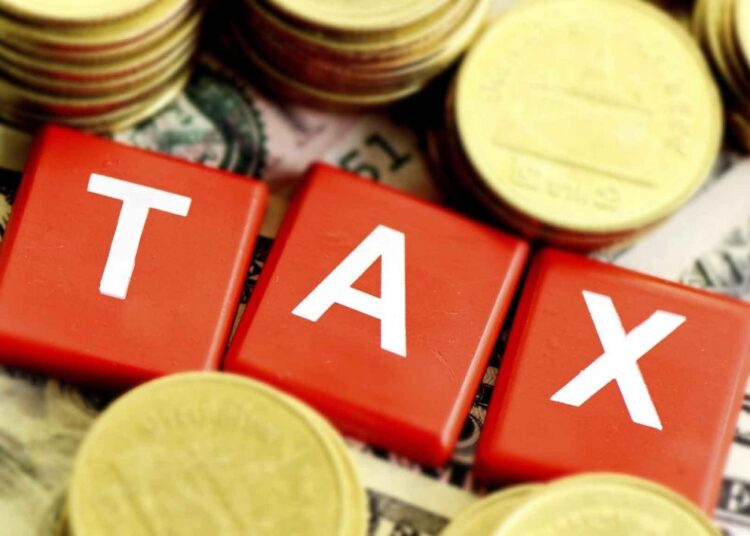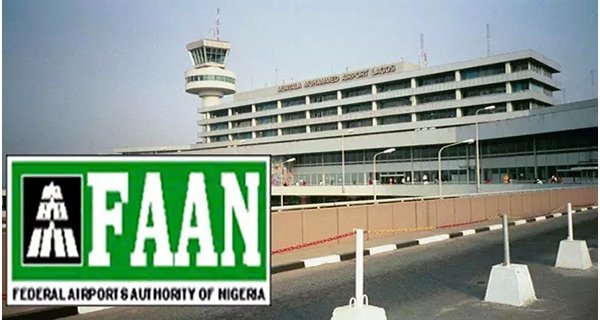By Kadiri Abdulrahman, Abuja
As the Federal Government takes steps to moderate its dependence on borrowing to fund budget deficit, experts say there is the need to maximise taxation potential of the country to boost revenue.
Stakeholders have continued to raise concern that the country’s dependence on debt to fund expenditure is becoming unsustainable.
Nigeria’s total public debt stock, according to the Debt Management Office (DMO) in a recent computation, hit N87.91 trillion, approximately 114.35 billion dollars in September 2023.
The DMO said that the amount represented both domestic and the external debts profile of the Federal Government, the 36 state governments and the Federal Capital Territory (FCT).
The debt stock represents a marginal increase of 0.61 per cent, when compared to the June figure of N87.38 trillion.
The need to boost tax revenue informed a recent Strategic Management Retreat by the Federal Inland Revenue Service (FIRS), geared at “re-imagining tax administration for equity and economic growth”.
During the opening ceremony of the retreat, Executive Chairman, Dr Zacch Adedeji, said the FIRS had a collection target of N19.41 trillion for 2024, after it surpassed its 2023 target of N10.7 trillion by N816 billion, having generated N12.37 trillion.
Adedeji said that the task would be achievable considering the reforms and new structure being put in place to boost voluntary compliance by taxpayers.
He said the new approach was to provide the enabling environment for businesses to survive in order to facilitate the collection of taxes.
“Our duty is to provide an effective tax collection system, we are not a revenue generating agency; we are a revenue collection agency.
“If we go with the plan that President Bola Tinubu has to rejuvenate the economy, it comes mainly from macroeconomic indices
“We are going to tax prosperity, not poverty, we are going to focus on the fruit and not the seed.
“Our duty is to make sure that we have that viable economic environment to lead to economic prosperity and for us here, it is just to put the structure in place to aid effective collection,” he said.
He said that the focus would be to increase tax without increasing tax rate.
“Our focus is actually to improve our effectiveness in collection to drive voluntary compliance.
“Also, expand the base and have a good environment that makes the companies prosper. When the base is big, the same percentage will give you more taxes and that is our target,” he said.
Left to right: Executive Chairman, FIRS, Dr Zacch Adedeji with Finance Minister, Mr Wale Edun at a public function
The Minister of Finance, Mr Wale Edun, said the country must focus on domestic revenue mobilisation to fund its budget.
Edun, who is also the Coordinating Minister of the Economy, said that amid the current economic realities, exploring expensive debts was not good for the country.
He said Tinubu administration remained committed to actualising a 77 per cent increase in domestic revenue mobilisation to assist in funding critical infrastructure, especially healthcare and education.
According to Edun, while tax revenue remains crucial, the issues around increase in government revenue deserve attention.
He said that the Federal Government owned enterprises must do more to augment the current fiscal position of government.
He said that the country’s tax revenue as a percentage of GDP, remained extremely low at 10 per cent.
According to the minister, though FIRS met and surpassed its target for 2023, additional efforts are still needed to measure up to the challenge in 2024.
He said the emphasis of the Federal Government was to grow the economy.
“In order to maintain and build confidence and public trust, what the taxpayers want to see is that their money is faithfully collected as it should be and properly spent and accounted for with minimal excess wastes and leakage.
“Given what is going on around the world, even an elevated and sustained increase in interest rates, borrowing is not the way to go.
“The emphasis is on Internally Generated Revenue (IGR), domestic resource mobilisation, and equity as opposed to debt,” he said.
The Accountant-General of the Federation (AGF), Dr Oluwatoyin Madein, said that FIRS now accounts for up to 70 per cent of the country’s total revenues.
Madein, however, said that a lot of tax revenues were still left uncollected, adding that there is the need to expand the current tax base.
She urged the FIRS boss to challenge the status quo in his bid to increase tax revenue.
“We have seen a massive improvement in tax collection with the changes at FIRS over the years. The FIRS now contributes about 70 per cent of the total federation revenues.
“Yet, a lot of tax revenues are left uncollected. The current tax base needs to be expanded while at the same time finding new and improved ways and means, and partnerships that engender tax revenue growth.
“With strategic cooperation within FIRS and strategic partnerships, and by challenging the status quo, I am strongly convinced that FIRS can set a new standard for tax administration in Africa.
“If we continue to do business as usual, we continue to get the same level of results,” she said.
The Coordinating Director of Special Tax Operations Group, FIRS, Amina Ado, said the N19.41 trillion revenue target for 2024 represented an increase of 56.9 per cent from the previous year’s actual revenue.
Ado said that the FIRS engaged with other regulators in 2023 to achieve its success and will continue to engage them, other tax practitioners and intermediaries.
“We engaged with other regulator; we will continue to engage them, tax practitioners, intermediaries, and the withholding concept to expand the tax base as much as possible under the law.
“The law has given us a lot of opportunities to expand the withholding concept so that we can take the taxes, and that way, the leakages downstream can be lowered.
“These are strategies we will deploy to ensure we deliver on this ambitious target”, she said.
Findings have shown that the ability to collect taxes is central to a country’s capacity to finance social services such as health and education, critical infrastructure such as electricity and roads, and other public goods.
A study by the International Monetary Fund (IMF) indicates that developing countries like Nigeria collect.just 15 percent of GDP in taxes, compared with the 40 percent collected by typical advanced economies.
This low level of tax collection is putting economic development at risk in such low-income countries.
Meanwhile, the Chairman of the Presidential Committee on Fiscal Policy and Tax Reforms, Taiwo Oyedele, said that his committee has proposed the use of USSD and other digital channels for the payment of taxes.
According to him, part of the proposals to the government is to cancel many of the current taxes that have become burdensome to the people, and harmonise the few that are justifiable.
He also advised the government to digitise the collection process with multiple channels including USSD to drive efficiency, reduce leakages and promote accountability.
Also, Attorney General of the Federation (AGF), Lateef Fagbemi, said that the Federal Government would provide all the support required by FIRS to enable it to deliver on its mandate.
According to Fagbemi, an effective tax administrative system is critical for growth and development.
He said that adequate taxes must be collected to fund government infrastructure and social programmes while also supporting the operating environment.
“It is important that tax laws and administrative processes are all-inclusive as well as stakeholder centric and not just tax payers centric,” he said.













